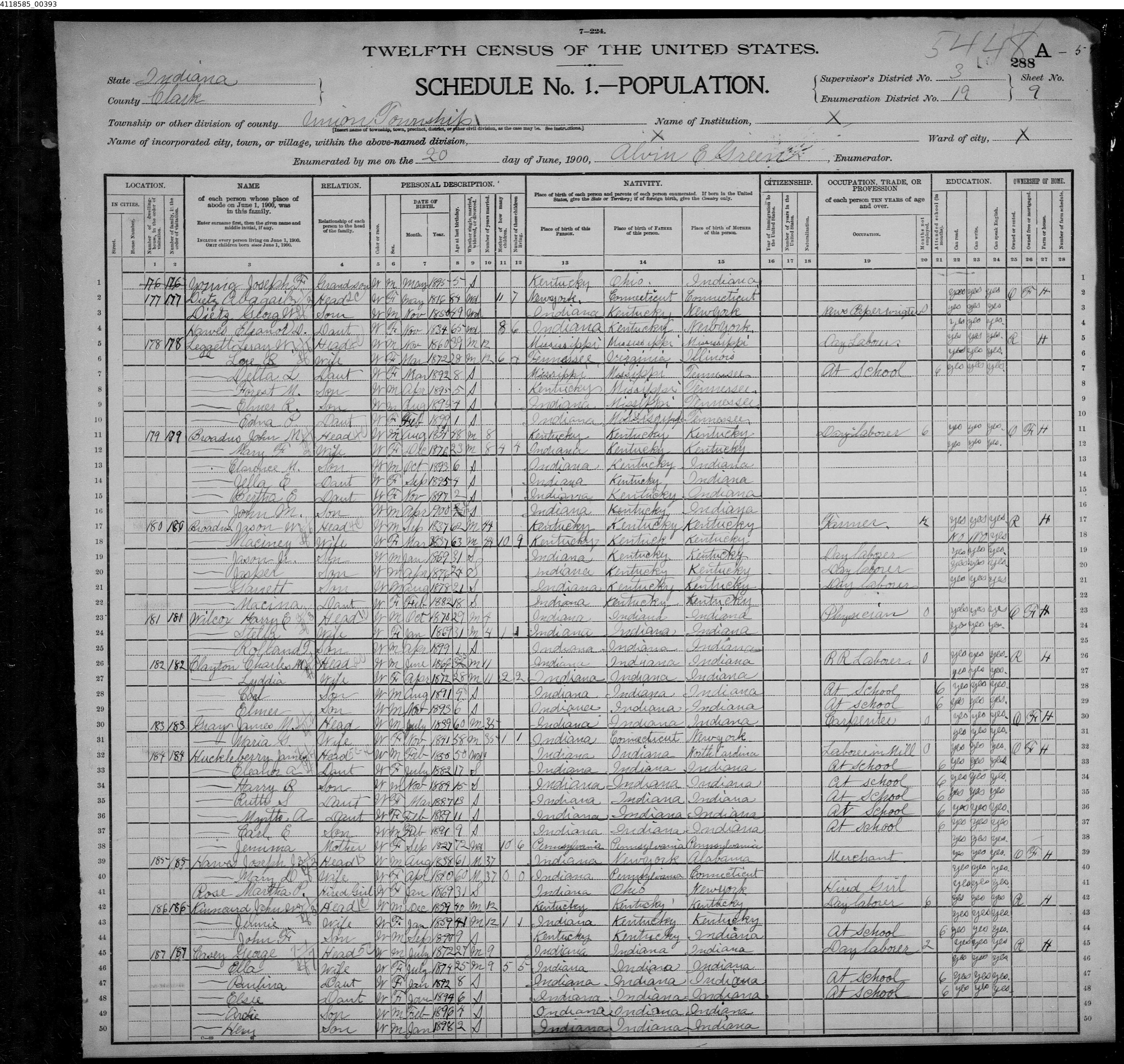On Family History
 My mom and aunt came to visit over Christmas and at some point, in between all the eating and shopping and walking that we did, we started talking about their father, which led to a discussion of that whole side of the family. I’ve never had much of an interest in genealogy for its own sake, but looking at census records and other sources provided a few hours entertainment and some interesting findings and observations.
My mom and aunt came to visit over Christmas and at some point, in between all the eating and shopping and walking that we did, we started talking about their father, which led to a discussion of that whole side of the family. I’ve never had much of an interest in genealogy for its own sake, but looking at census records and other sources provided a few hours entertainment and some interesting findings and observations.
Despite the amount of records and detail available through online resources (e.g. familysearch.org and ancestry.com) – names, birth dates, death dates, occupations, marriages – what I found most lacking in the whole experience were actual lives and personalities. A few bits of family lore have survived relating to some of the people in the family tree, but for the vast majority the impersonal documentary records are all that I know about them and there is nothing to truly give them context. Given a choice I’d prefer stories passed down with all the colors of everyday life and distortions of time over any amount of statistical detail.
However, it was interesting to try to match popular family stories and perceptions with the discernible facts, particularly relating to ethnic origins. I’d always heard growing up that of my four maternal great-grandparents one was Anglo-American, one Welsh, one German, and one Irish, but how far back those roots went wasn’t always clear. The English goes back to the 1630s – we knew that. If there was indeed a Welsh connection (names suggest it’s likely), I couldn’t find it so it goes back to at least the early 18th century. The German (Bavarian, actually) and Irish connections both date to immigrants who arrived in North America in the 1840s, so my great-grandparents on those branches of the family were both third generation. However, the perception of them as ‘German’ and ‘Irish’ despite the actual distance from those roots suggests the families held on to a relatively strong sense of ethnic identity. It is also interesting that when those two branches of the family came together the German traditions seem to have predominated, like celebrating St. Nicholas Day. My mother was conscious that she had an ‘Irish’ grandmother, but the family never claimed that identity and neither do I. (My standard answer to the question ‘do you have Irish family/ancestry?’ is no, because it has nothing to do with who I am or why I live in Ireland.)
This raises the issue of genealogy leading to the creation of family myths or identities where none existed before. Perhaps some who do genealogical research are motivated by the desire to have a family story where it had been largely lost or forgotten, but while in some ways the impulse is understandable, it can be dangerous in that ‘histories’ enter a story they were never part of before. Thus, people find out that they had ancestors in Ireland in the early 19th century and all of a sudden call themselves Irish, though they may have grown up knowing little or nothing of that heritage or traditions. I find that idea very strange, but maybe it’s a personal issue.